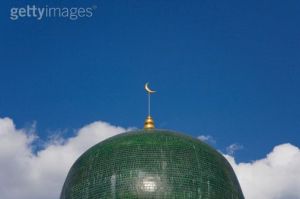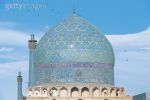WAITING AS A SPIRITUAL PRACTICE
Waiting as a spiritual practice is found in almost every religious tradition I can think of.
![sb10066414y-001[1] (1)](https://nuntucksalmanac.files.wordpress.com/2011/03/sb10066414y-0011-1.jpg?w=298) For Muslims, the month of Ramadan, the 9th month of the Islamic calendar, marks a month of fasting, giving alms, abstinence from all things of the flesh,and active prayer. This is in an attempt to cleanse the soul, but also it is thought that using these methods of emptying out the cares and desires of the physical world, one is preparing and waiting for the revelations of God to be experienced. This is what happened to Muhammad. In fact, the holiest night of the Muslim year is Laylat al-Qadr, it falls just before the close of Ramadan, and commemorates the night when the Qu’ran was first revealed to the prophet Muhammad.
For Muslims, the month of Ramadan, the 9th month of the Islamic calendar, marks a month of fasting, giving alms, abstinence from all things of the flesh,and active prayer. This is in an attempt to cleanse the soul, but also it is thought that using these methods of emptying out the cares and desires of the physical world, one is preparing and waiting for the revelations of God to be experienced. This is what happened to Muhammad. In fact, the holiest night of the Muslim year is Laylat al-Qadr, it falls just before the close of Ramadan, and commemorates the night when the Qu’ran was first revealed to the prophet Muhammad.
 In Jewish tradition, waiting and the practice of patience in the face of daunting circumstances, has been a recurring theme since the Book of Exodus and those ensuing dark days in the desert. The Jewish people wait for the angel of death to pass over their households during Passover and recreate the stories of bitter times and the promise of sweeter days in the Seder. Again, fasting, prayer, and self-denial carve pathways to this opening up of the soul.
In Jewish tradition, waiting and the practice of patience in the face of daunting circumstances, has been a recurring theme since the Book of Exodus and those ensuing dark days in the desert. The Jewish people wait for the angel of death to pass over their households during Passover and recreate the stories of bitter times and the promise of sweeter days in the Seder. Again, fasting, prayer, and self-denial carve pathways to this opening up of the soul.
The Christians now find themselves in the heart of Lent. Christians too share these same tools of purification. Yet they wait for something unique to the other monotheistic religions. They wait for the day of Resurrection, the Day that Jesus rose from the dead.
 And, yet, even if one does not believe in the actual physical revival of the Christ from the dead, the stories that rise up from the New Testament can resonate with each of us, teaching us the power of waiting in faith.
And, yet, even if one does not believe in the actual physical revival of the Christ from the dead, the stories that rise up from the New Testament can resonate with each of us, teaching us the power of waiting in faith.
These are stories that speak of yearning and suffering. Yearning for a better life, a purpose, a meaning, and the reality of pain. The stories of Jesus of Nazareth are stories of hope and fear, loyalty and betrayal, acceptance and denial, life and death. Jesus tasted both the success of his mountain ministry (see Matthew’s feeding of the 5000) and yet was still determined to go to Jerusalem, with death threats and a certain persecution.
His followers were waiting for a triumphant crowning of a king as the culmination of a glorious ministry. Instead, they were confused and angry by a leader ridiculed and crucified. Jesus tried to point out that this path he was on, was not one easily understood by the ways of the world, that his lessons were those of the spirit and not of earthly successes and kingdoms. Certainly choosing to undergo great suffering is not a natural inclination.
Our own stories of waiting for a better day, whether for a job that has not yet materialized, a healing from an illness (our own or a loved ones, or even a death), can find much solidarity with the Bible stories of Lent. They are filled with expectation on one day, as Jesus heals a leper and brings the dead to life, and then disillusionment, despair, and death on the next.
One of the definitions of resurrection that I can hold up to a broader, secular audience is the Greek notion of resurrection as the “state of one who has returned to life.”
We all have seen the grief-stricken and the broken find a way back to a full and happy life after the most unmitigable tragedies, this is the promise of resurrection that casts it net wide and yet does not strain the boundaries of the intellect. It is the faith of waiting.
 Quote for the day: “Even if one glimpses God, there are still cuts and splinters and burns along the way.”
Quote for the day: “Even if one glimpses God, there are still cuts and splinters and burns along the way.”


